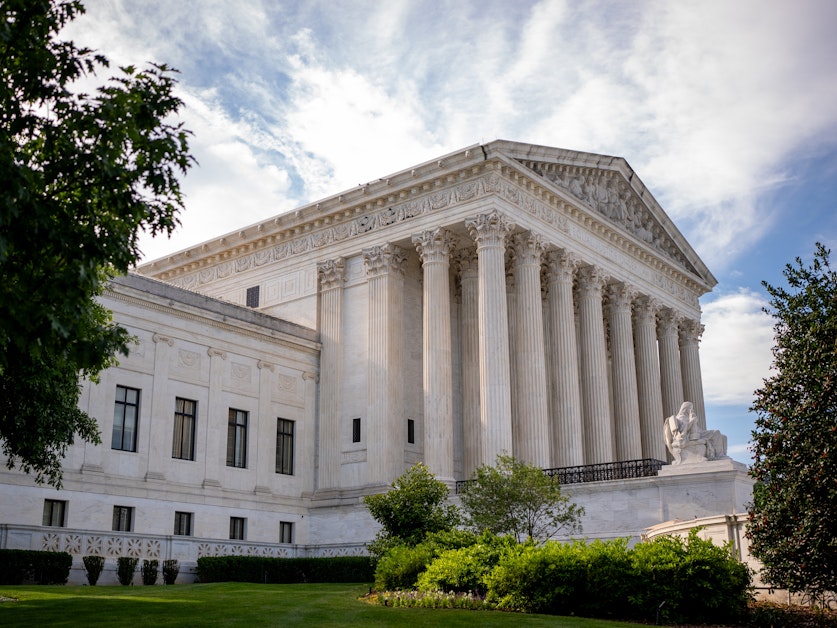Catholic charity tests the Wisconsin unemployment payment system at the Supreme Court
The Supreme Court of the US hears arguments in a case that tests if the Catholic charities have the right to give up a state unemployment compensation system for its employees.
Ironically, the case comes from Wisconsin, who in 1932, at the height of the great depression, became the first state in the country to set up a unemployment compensation program.
The experiment failed, for the most part because the payment was optional, and the employers often gave up to decrease their competitors. But three years later, the Congress adopted a federal-state unemployment system that imposed on all employers, including non-profit, to pay in the system, so that the employees who lose their job can pay their basic invoices. The only exemptions were for religious employers who carry out programs that are “operated mainly for religious purposes”.
The Monday case was brought by a single chapter of Catholic charities, affiliated with the eparchy of the superior in the north of Wisconsin. The chapter claims that it has the right to be exempted from the system of compulsory compulsory unemployment, because it is a charitable organization that fulfills a religious mission. At the same time, however, the Catholic charity organizations specifically avoid indoctrination. Proselytization is not allowed, and employees include Catholics and non-Catholics.
“I do not think this distracts that it is part of a religious mission,” says Eric Rassbach, which represents Catholic charities in the Supreme Court. “The Catholic church tells people they should help other people.”
But the state of Wisconsin says it is not enough to qualify for an exemption from the compulsory compensation system. The state observes that other non-profits, and even other chapters of Catholic charity, do not seek religious exemptions, even if they are led by the dioceses they serve.
The state in his briefs claims that the work that the Catholic charity organizations are doing is “typical” of the activity performed by other non-profit and that, without a religious gloss on the real services provided by charity, it is the same as other non-profit that must pay in the state system.
But Rassbach contravenes that the forcing of Catholic charities to participate interferes with the free exercise of the religion by the Church and that it unconstitutionally confuse the Church and the state. He believes that the mandatory system is “perverse”, because, under the reason of the state, the Catholic charities could give up the system if they were proselytized or used only Catholics, but cannot give up its current practices, even if it acts as the charity of a diocese.
So why does this branch of Catholic charities want to give up the state program? He wants to join something called the program of unemployment or Cupp, which offers unemployment compensation for employees from churches, Catholic schools and other affiliates of the religious church.
“We believe this will definitely save us some money [Catholic Charities] It can use to carry out the rest of their mission, ”says lawyer Rassbach.
This vision, however, is not universal.
“Our concern is to achieve what you pay,” Maine Laurence Dupuis, who has submitted a short in this case on behalf of the Institute of Economic Policies and similar organizations in support of the state position. “In fact, the CUPP program declines any responsibility if the employer does not have enough reserves … and you would lose all the federal supplements that go with this, and this is particularly important during deep decreases.”
As a practical matter, says Dupuis, he does not believe that CUPP is equivalent to the state unemployment compensation program and warns that if the Supreme Court allows the higher Catholic caries to give up, there will be no stopping point for other organizations. According to Dupuis, at national level, “Catholic hospitals employ only 500,000 people and we estimate … 1.2 million people employed in non-profilized religious profilities.”
If all these Catholic hospitals and religious employers would give up their state insurance systems, he says, they would put an authentic tension on the viability of the systems, a tension that could be felt in 46 other states that have religious exemption similar to Wisconsin.
It does not resist all this, the state of Wisconsin is probably playing a weak hand at the Supreme Court. Catholic charity is a revered organization that does everything, from granting the help of the needy to helping to relocate the refugees. The conservative super-majority of the Supreme Court has repeatedly confronted with the position of the Catholic Church in cases of religion, and seven of the nine justices were raised Catholic.
#Catholic #charity #tests #Wisconsin #unemployment #payment #system #Supreme #Court
